Title : Cryopreservation of Honey bee drone spermatozoa
Abstract:
Beekeeping has a significant role regarding the food and pharmaceutical industry. The production of pollen, propolis, royal jelly, beeswax and bee venom is an important factor for the human health and nutrition. Honey bees are the main pollinator for over 70% of agricultural crops. The mass extinction of honey bee colonies is a problem that occurs in the last decade and the scientific explanation of the phenomenon is not conclusive. Drone semen cryopreservation is a useful tool to enrich the genetic diversity of the colonies which has a major role on disease resistance in honey bees. The drone semen cryopreservation gives the opportunity for the beekeepers to preserve semen samples for long periods of time and to be used for artificial insemination of queens from different colonies. However, the cryopreservation processes has a negative effect on spermatozoa because of the cold shock, the cytotoxicity of the cryoprotectants and the formation of reactive oxygen species. In the presented review will be considered the instrumental methodology for the extraction of drone ejaculates, the modern protocols for low-temperature storage and the most commonly used cryoprotectants. In addition, the use of new substances and chemical components in the cryopreservation media will be examined. Attention will be paid to the problems related to the artificial insemination of queen bees with seminal fluid after a long period of cryopreservation. The presented report aims to inform specialists in the field of veterinary medicine dealing with the reproduction and breeding of bee colonies and to present the future aspects of long term low-temperature storage of honey bee drone spermatozoa.
Acknowledgement: This work realized with the support of the Scientific Research Fund in implementation of project No. No.KP-06 M66/6 2022
Audience Take Away:
- The audience will be able to learn how the process of cryopreservation of drone spermatozoa is performed;
- It will be beneficial for specialists in different arias to apply the methods of long-term storage of genetic material for artificial insemination;
- The research is beneficial for teaching specialist to integrate the methods in their theoretical and practical curriculum.
-
The presented methodology is beneficial for establishing new protocols for ultra-low-temperature storage and subsequent artificial insemination of Honey bees;



